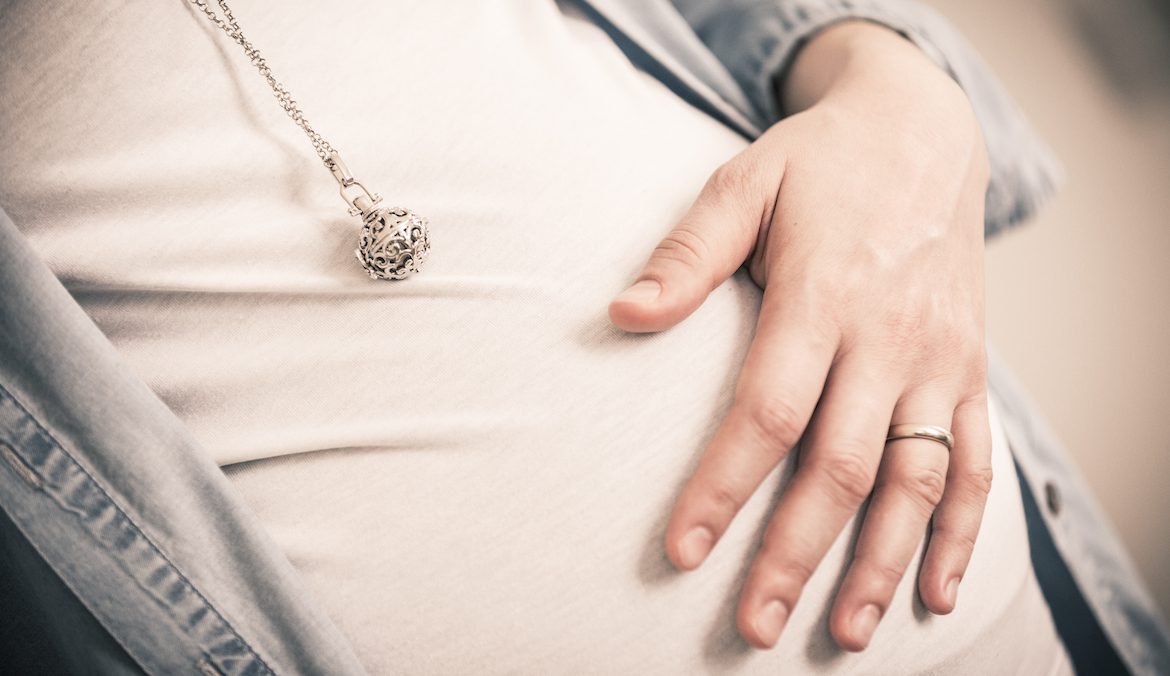
[ad_1]
Starting just shy of the halfway mark in my pregnancy, I started waking up with tingling hands. I thought I must just be sleeping in funny positions. Then, I started getting pain on the inner side of my wrist, under my thumb. I joked that I was getting “phone thumb,” and figured I must be scrolling more than usual.
Then I learned that your joints get all sorts of jacked up during pregnancy, in large part due to the increasing flow of the hormone relaxin, which relaxes your joints—and eventually your cervix—in preparation for labor. I ran my “phone thumb” by a relative who is an OB/GYN (lucky me) to ask her if it might be relaxin-related, and to my surprise, she asked me if I was waking up with tingling hands! It turns out that both tingling and wrist pain are symptoms of carpal tunnel syndrome, which can occur during pregnancy—and doesn’t have anything to do with relaxin.
Experts In This Article
- Sarah Whitworth, OTR, OTD, CHT, occupational therapist, certified hand therapist, and owner of a FYZICAL Therapy and Balance Center in Sherman, TX
- Tori Russell, MS, OTR/L, CHT, occupational therapist and certified hand therapist at FYZICAL Therapy and Balance Centers in Woodstock, GA.
What is carpal tunnel syndrome?
As the American Academy of Orthopedic Surgeons explains, the carpal tunnel is a narrow passageway in the wrist that the median nerve, which is responsible for much of the feeling in the hands and plays a role in controlling thumb movements, passes through as it stretches all the way from the neck down the arm to the hands. The tendons responsible for bending the fingers also go through the carpal tunnel. That’s a lot of important traffic for about an inch of space!
Given all that activity in the carpal tunnel, when the nerves and tendons don’t have enough room to go about their business, your hand function gets royally messed up. Carpal tunnel syndrome specifically occurs when too much pressure is exerted on the median nerve. Pressure on the nerve leads to tingling, numbness, pain, and loss of hand strength.
“Typically, it is caused by direct sustained pressure,” says Tori Russell, occupational therapist and certified hand therapist at FYZICAL Therapy and Balance Centers in Woodstock, Georgia. “Common examples include pressing down on a mouse pad or table for long periods of time, forced prolonged wrist flexion or extension such as riding a bike and pressing palms on the handlebars, sleeping with wrists flexed, or swelling for any reason such as post-op, pregnancy, arthritis, tendonitis, or injury.”
Why does carpal tunnel syndrome occur during pregnancy?
While repeated pressure on my median nerve from my thumb scrolling through Instagram does probably cause some stress in my carpal tunnel, the culprit behind pregnancy carpal tunnel syndrome is generally increased swelling, which is known as “edema,” thanks to the extra blood and water circulating throughout a pregnant person’s body.
“Increased edema in the carpal tunnel can occur in pregnancy as fluid levels in the body change,” says Sarah Whitworth, occupational therapist, certified hand therapist, and owner of a FYZICAL Therapy and Balance Center in Sherman, Texas. All the extra fluids circulating to get nutrients to my fetus and, yes, lube up my joints, means a tiny tunnel just gets put under a lot more pressure than normal.
What’s more, pregnant people who “use forceful or repetitive hand and finger movements” may be more likely to develop carpal tunnel syndrome during pregnancy, according to Kaiser Permanente. So while my repetitive scrolling motions might not bother me normally, the fact that the nerve is being squished by all my extra fluid makes for a perfect carpal tunnel storm. Also, anecdotally, Russell says, “I have also noticed women who are more petite with smaller bone structures experience compression on the carpal tunnel.” I’m 5 foot 1, so my poor pregnant wrists didn’t stand a chance.
How can you relieve carpal tunnel syndrome symptoms during pregnancy?
The good news first: If your carpal tunnel syndrome only came on during pregnancy, it will most likely abate shortly after. If it’s still there about a month after giving birth, Whitworth suggests speaking with your doctor.
In the meantime, you can do carpal tunnel exercises to mobilize your wrists like anyone else with carpal tunnel syndrome would, and there is quite a bit of overlap in treatment in general. However, since the main cause of carpal tunnel syndrome during pregnancy is swelling—not necessarily repetitive motion—treatment and relief looks a little bit different.
Here are Russell’s tips for relieving carpal tunnel syndrome during pregnancy.
- Wear a cock-up splint for bed and tipless edema gloves during the day.
- Ice your wrists at night and several times during the day, for about five minutes at a time.
- Apply heat, stretch, and move throughout the day.
- Pump your arms overhead to help get the edema out of your hands.
- Consider hand therapy including fluid therapy, ultrasound, massage, manual stretching, and lymph mobilization.
- Invest in some adaptive equipment such as larger handled items or ergonomic workstations.
Personally, my ACE wrist splint ($22) has been my best friend and I wear it whenever I’m starting to feel some pain. If you’re suffering from carpal tunnel syndrome during pregnancy, know that you’re not alone (hi!), and that, most likely, the pain and suffering is temporary—although no one should dare trying to comfort me with this fact when I’m in pain, and hungry, and tired, right freaking now. Just another joy of pregnancy, am I right?
Our editors independently select these products. Making a purchase through our links may earn Well+Good a commission.
[ad_2]
Source link





